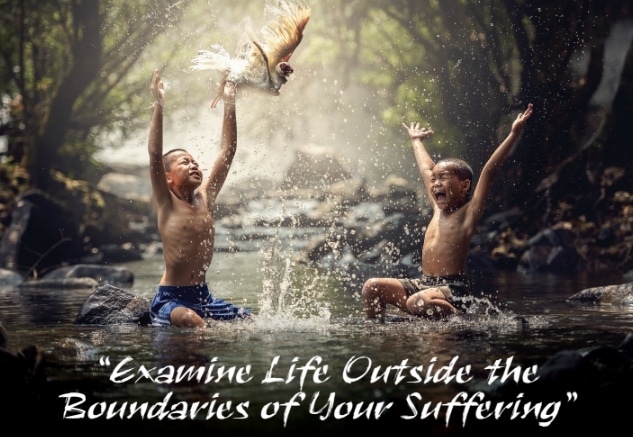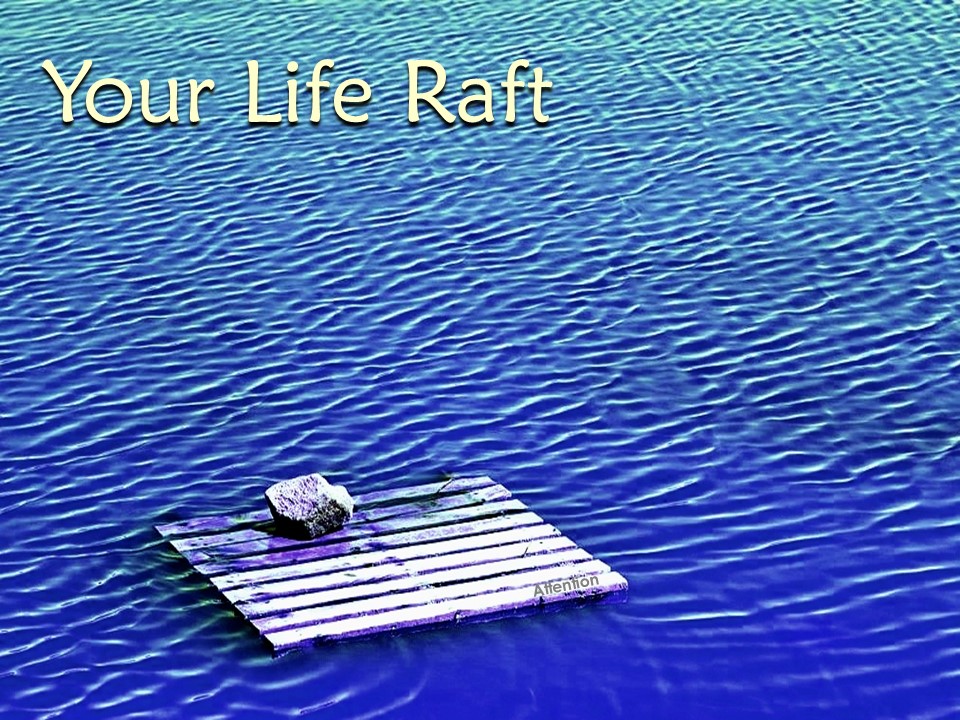I’ve just finished conducting a nine day residential training in Japanese Psychology at the ToDo Institute in Vermont. During portions of the training we put up a large piece of flip chart paper in order to create a Thank You – Sorry board. The image you see in front of you is an example of such a board after it’s been filled in. The process is really very simple. The top half of the board is reserved for notes of thanks from one person to another. The bottom half of the board is reserved for notes of apology. Throughout the day, people can walk up to the board and grab a marker and scribble a short note, either thanking someone or apologizing to them. As the board gets filled in, it becomes a record of some of the acts of kindness that have taken place that day.
-
Option B
Gregg Krech, , Life Not on Hold, Mental Wellness, Taking Action, ToDo Institute, Acceptance, resilience, Taking Action, 0
A year ago my good friend, Trudy, began organizing a birthday party for her mother who is 100 years...
-
Examine Life Outside the Boundaries of Your Suffering
Gregg Krech, , Gratitude, Attention, gratitude, Mental Wellness, naikan, 0
Ironically, the occasions of our greatest focus are often when we are suffering. We may be struggling with an...
-
Starting from Scratch
Gregg Krech, , Mental Wellness, Taking Action, Procrastination, 0
You’re starting with nothing. You sit down to write an essay (or novel) facing a blank screen. You sit...
-
Single-Tasking
Linda Anderson Krech, , Attention/Mindfulness, Mental Wellness, ToDo Institute, 0
“Multitasking” is a way of life for many of us today, but the term is misleading and inaccurate. We’re...
-
Make the best of the situation
Gregg Krech, , Mental Wellness, Acceptance, Mental Wellness, 3
I’m organizing some of the maxims I use for teaching our upcoming course on A Natural Approach to Mental...
-
Your Life Raft
Gregg Krech, , Attention/Mindfulness, Mental Wellness, ToDo Institute, Attention, Mental Wellness, Mindfulness, 0
by Gregg Krech You will not find happiness on the path of Self-Preoccupation. You need to abandon that ship....
-
Highlighting a Year That Hasn’t Begun Yet
Gregg Krech, , Holidays, New Year's, Relationships, Taking Action, ToDo Institute, family, new year, Purpose, 0
What were the highlights of the past year for you? Reflecting back on the joys, sorrows and challenges of...
-
Day Three of the Retreat
Linda Anderson Krech, , Acceptance, Gratitude, Kindness, Acceptance, appreciation, Attention, gratitude, Kindness, Mental Wellness, naikan, Relationships, 0
If your partner took a magic truth potion, how would he or she describe you? What is it like...
Categories
Thirty Thousand Days
Recent Reviews
-
Constructive Living
Rated 5 out of 5by Mitsuo Ao -
Constructive Living
Rated 5 out of 5by Elisabeth Kubler-Ross, M.D. -
How To Live Well: Secrets of Using Neurosis
Rated 5 out of 5by Henry Kahn, M.D. -
Naikan: Gratitude, Grace, and the Japanese Art of Self-Reflection, Anniversary Edition
Rated 5 out of 5by Rabbi Rami Shapiro, author of Proverbs, the Wisdom of Solomon













Comments are closed.
Hi Gregg,
Thanks for posting this video today. This board seems like a skillful tool to use with a group. And it just so happens that earlier today I was thinking ” what sort of idea from Japanese Psychology can I take to this group this afternoon?” I’m beginning 12 weeks of coaching an intern as she works with seven young adults – ages 17 – 21 in a government funded jobs readiness program. They will be together 5 days a week doing computer training, GED, job coaching and then interviewing for jobs. The Friday group will provide leadership skills, provide a planning time for a group service project and also be a space to work on their relationships with each other and address issues that come up during the week. This board seems like a perfect way to introduce the whole idea of noticing what it is you notice in relationship to others and to practice expressing thanks and regret.
Thank you again for this simple tool.
Margaret